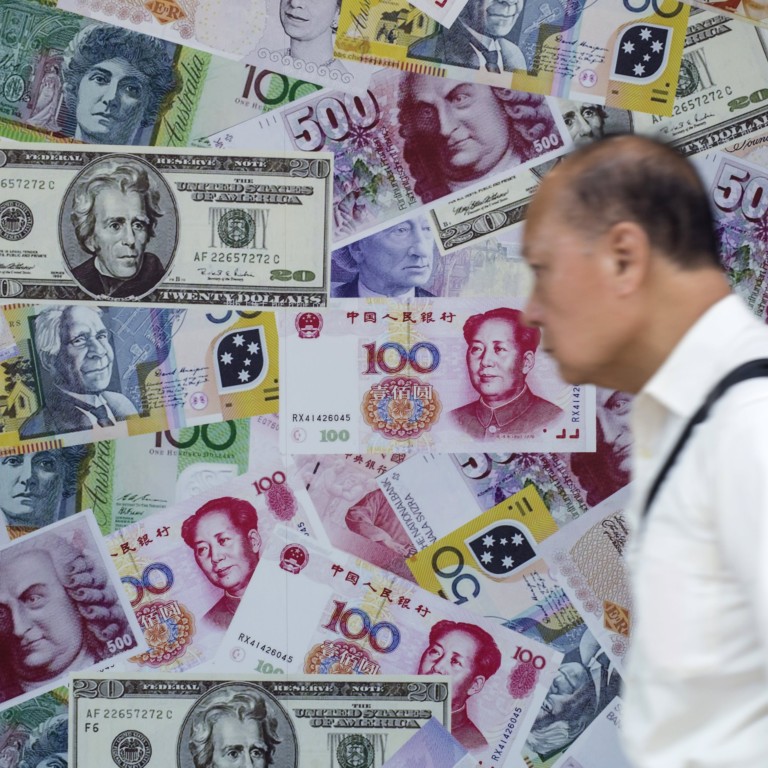
New | China’s bond market bubble may be unsustainable
The equity rout has been a boon to China’s bond market. As fears linger over stocks, yield-hungry capital has headed into bonds, building a bubble that analysts say cannot be sustained. China’s prodigious bond market, the third-largest in the world after US and Japan, has been aided by several factors and started to take off this year.
Loosening curbs on companies issuing papers, a local-government debt swap plan that propelled bond issuances, and rounds of monetary easing by the central bank have increased the allure and variety of fixed income products. Eventually, the stock market crash in June that saw funds unwind positions pressed the button on the bond party.
“In many ways, this is like a perfect storm,” said Zhou Hao, an analyst at German lender Commerzbank, referring to the phenomenon in which a rare combination of factors significantly magnify the trends in the market.
“To some extent, authorities hope to see a thriving bond market, similar to how they pinned hopes on the stock market before,” Zhou said.
In the first three quarters of this year, net bond issuance amounted to 8.7 trillion yuan, 67 per cent higher than the same period last year. The most preferred type, and likely the most precarious one, is corporate bonds issued and traded at stock exchanges, which gained momentum since authorities lifted the ban on property developers tapping domestic bond markets last December.
“There have been few choices beyond bonds to invest since June. The bond market, especially corporate bonds, saw leverage grow rapidly between July and August,” said a source at a leading mainland brokerage.
The most popular way of fixed-income investments has been through pledged repurchases, or repos. In a typical transaction, an investor uses original funds to buy an initial batch of notes, and pledge part of that to a lender at a set period for a set interest rate, or repo rate, in exchange for additional capital. The additional funds in turn are used to buy more bonds. The process could repeat for up to 10 times, Zhou said.
In the first eight months this year, pledged repos trading volume surged to 25.8 trillion yuan, nearly double the full-year level last year, according to Shanghai Clearing House data, which settles the inter-bank bond market that accounts for the lions’ share in the country’s bond market.
Meanwhile, bond trading has also prevailed at the Shanghai Stock Exchange. On September 30, bond trading accounted for over 70 per cent of total turnover in the Shanghai bourse, with less than 30 per cent in stocks, reversing the traditional dominance of scrip in the exchange.
As a result, yields of non-government bonds have been tailing off and credit premium become almost negligible. For example, the yield spread between five-year, triple-A government and corporate bonds shrank to less than 100 basis points, the lowest on record. Yet, at the same time, corporate profits are deteriorating and economic fundaments have not shown signs of improvement.
“Such unusual situation, in China’s case, is largely a consequence of liquidity seeking assets, since savers cannot invest offshore due to regulatory restrictions. Most people have no choice but invest domestically, in bank deposits, property, stocks and bonds, or shadow banking, trust financing products. So they have to chase what’s available,” said Dilip Parameswaran, head of Asia Investment Advisors, a Hong Kong-based firm advising Asian fixed income markets
The yield has gotten so tight that little fuss was felt in the market when China National Erzhong Group, a state-owned heavy machinery maker, announced in mid-September it was about to enter bankruptcy restructuring and miss the interest rate payments on its bonds.
“With bumper liquidity, the dearth of other high-yield assets, and an unappealing stock market, the credit spread has been squeezed and it takes a lot more than a single default case to reverse such a trend,” Citic Securities analyst Hu Yufeng wrote in a report.
The multiple repos to some extent have been self-perpetuating. Since late August, repo rates for exchange traded bonds have been ticking up, eclipsing investment returns. “In order to guard returns, one can only upscale the leverage,” Zhou said.
Mainland-based analysts including those at Hua Chuang Securities and China Everbright Securities have also warned of risk brewing, which they say may be set off on the resumption of initial public offerings or recovery of the stock market that siphon funds out.

